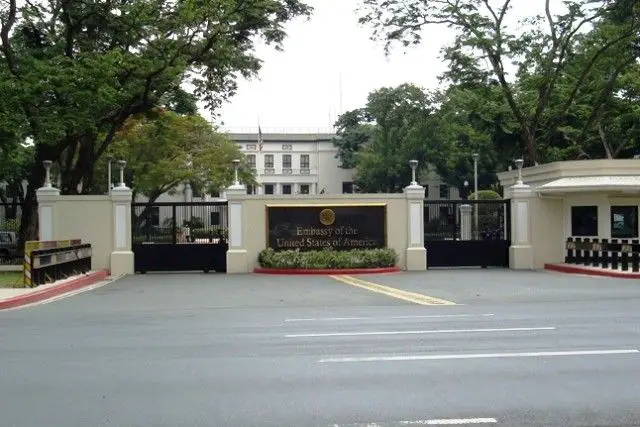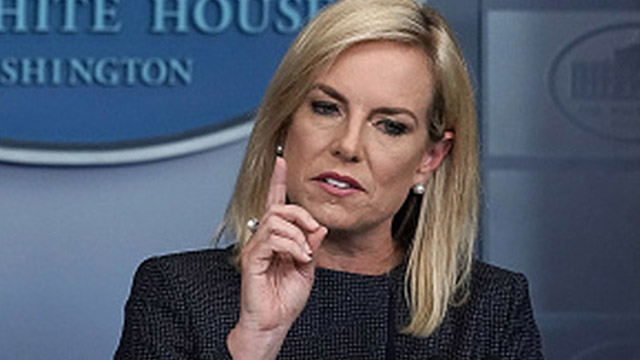The United States (U.S.) Department of Homeland Security banned the issuing of visas for new Filipino people who are looking for both non-agricultural and agricultural jobs in their country for a year. Last Friday, 18th of January, the department posted in their announcement that the Philippines won’t be eligible to participate in both the H-2A and H-2B programs and this is because of the severe number of overstay rates.

Based on data and statistics, the ban is rooting from the amount of the overstay rates of Filipinos. It is a staggering 40 percent from H-2B visa holders.
The Philippines has a high H-2B overstay rate. In FY 2017, DHS estimated that nearly 40 percent of H-2B visa holders from the Philippines overstayed their period of authorized stay.”
Read: Frequently Asked Questions for Aspiring Flight Attendants
When will the ban take effect?
Luckily, the ban is not forever. In their announcement, the said ban will take effect from the 19th of January 2019 to the 18th of January 2020 according to the Department of Homeland Security (DHS).
What are the H-2A and the H-2B visas?
To give you some sort of a short description, both visas are type of working visas in the United States that allow foreign workers to work in their country.
The H-2A visa is a type of visa that allows foreign workers temporary access or seasonal agriculture work in the U.S. On the other hand, the H-2B visa is given to foreign workers in the United states for temporary non-agricultural services.
Read: 2019 Salary Grade of UP Professors and Admins
How about the alarming rate of most T-derivative visas?
In addition to the severe overstay rate of H-2B Filipino visa holders, the US agency also made note that the US Embassy in Manila is the branch who issues the largest number of T-derivative visas.
T-derivative visas are prearranged for certain members of principal T-1 non immigrants or a definite set of victims of a serious form of human trafficking.
According to the Kirstjen Nielsen, Homeland Security Secretary, they are really seriously concerned about the number of trafficking victims from the Philippines.
DHS and (Department of State) are concerned about the high volume of human trafficking victims from the Philippines who were originally issued H-2B visas and the potential that continued H-2B visa issuance may encourage or serve as an avenue for future human trafficking from the Philippines.”
Read: Saudi Arabia Jobs that OFWs Can No Longer Apply For
Other than the high volume of overstaying of H-2B visa holders, H-2A visa applications also saw a significant increase in Filipinos from the year 2015 to 2018. Because of this, the State thought that the continuous issuance of H-2B and H-2A visas can be a potential threat and can be used to execute human trafficking from the Philippines.
Is the Philippines the sole country where there are a lot of working visas?
Philippines is noted by the DHS as the country where there were the most H-2B visa issuance. However, the Dominican Republic and Ethiopia were also removed from the list of countries who are eligible for the said visa programs because of the high volume of applications and grants.
How about the current H-2B and H-2A visa holders, would they be affected?
In the notice, the DHS gave current visa holders the assurance that those who hold either an H-2A or H-2B non immigrant status will not be affected yet.
Read: Japan Offers Jobs to Filipinos – Php73, 000 to Php78, 000 Salary Per Month
Persons currently holding such status, however, will be affected by this notice should they seek an extension of stay in H-2 classification, or a change of status from one H-2 status to another.”
As of the moment, the three (3) countries were removed from the eligibility lists for both H-2A and H-2B for 2019. However, nationals can still become beneficiaries of approved petitions upon request of the petitioner which is determined by the US Citizenship and Immigration Services.
Due to the high volume of H-2 classification visa applications from our country, the United States was alarmed that this can actually be a path to human trafficking and that is what they’re trying to avoid.
What do you think about this ban? is this just fine for the U.S. to control the number of foreign workers entering and exiting their country? Although the ban will automatically be lifted next year, Filipinos would not have a chance to work in the United States for the time being.

